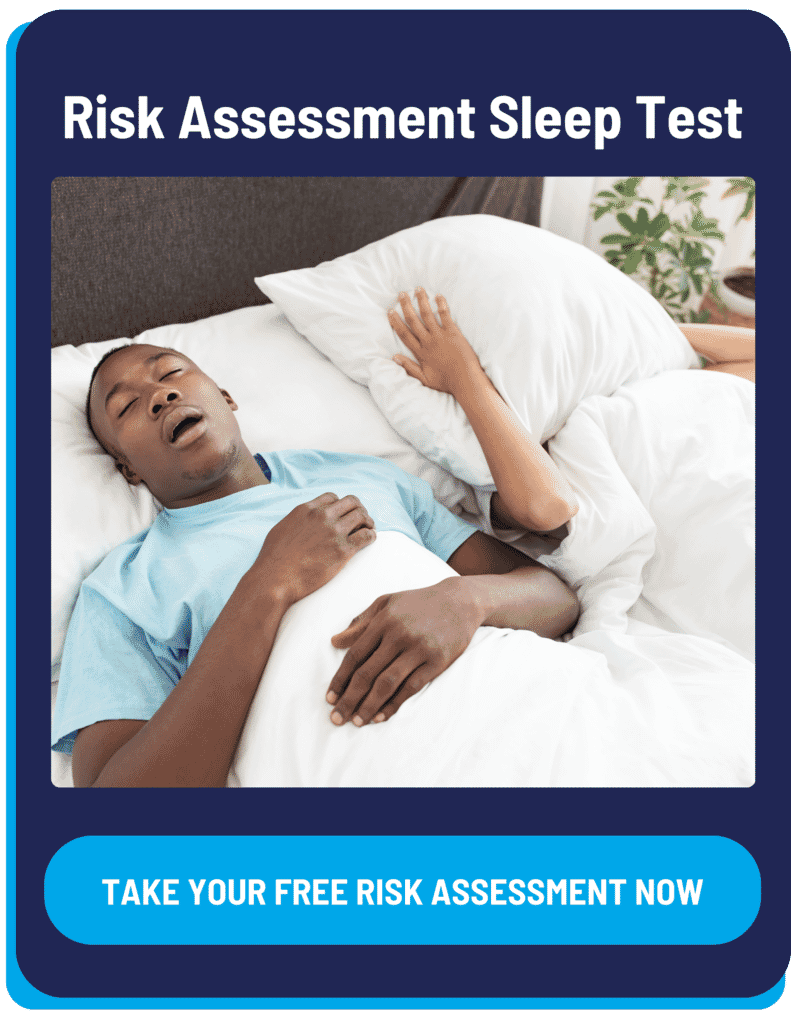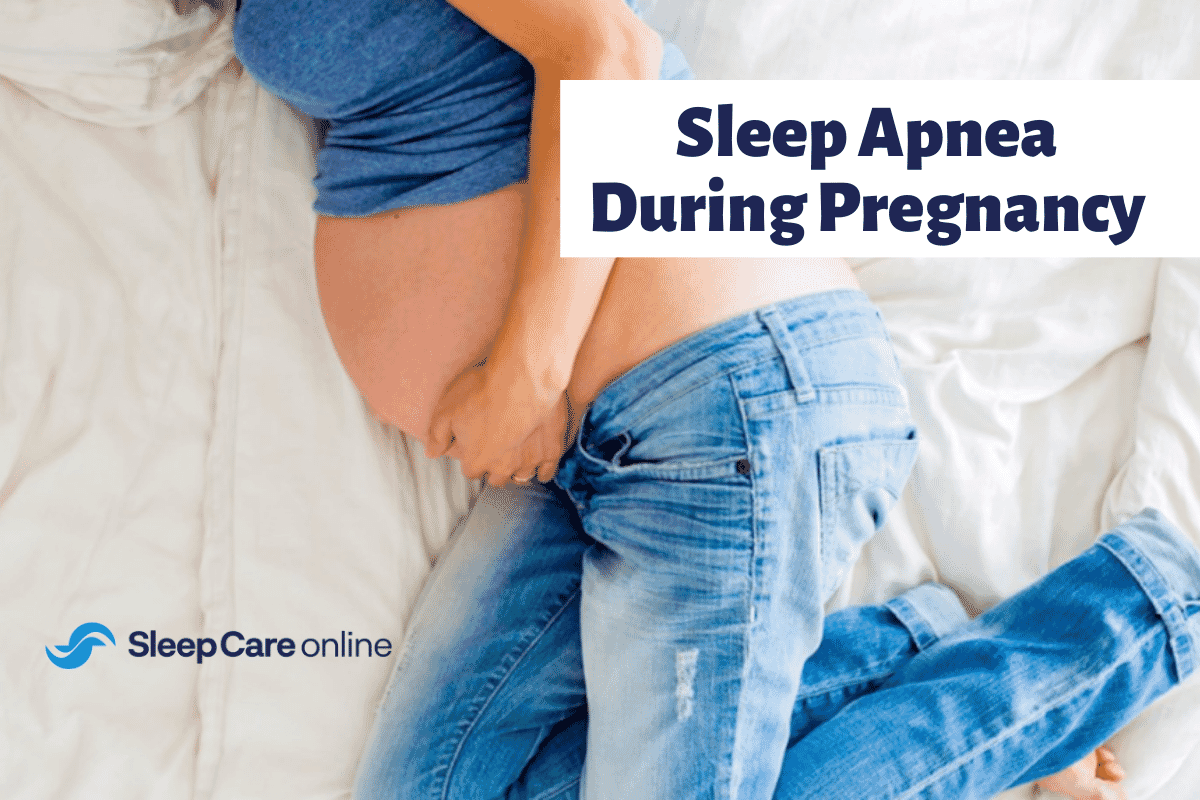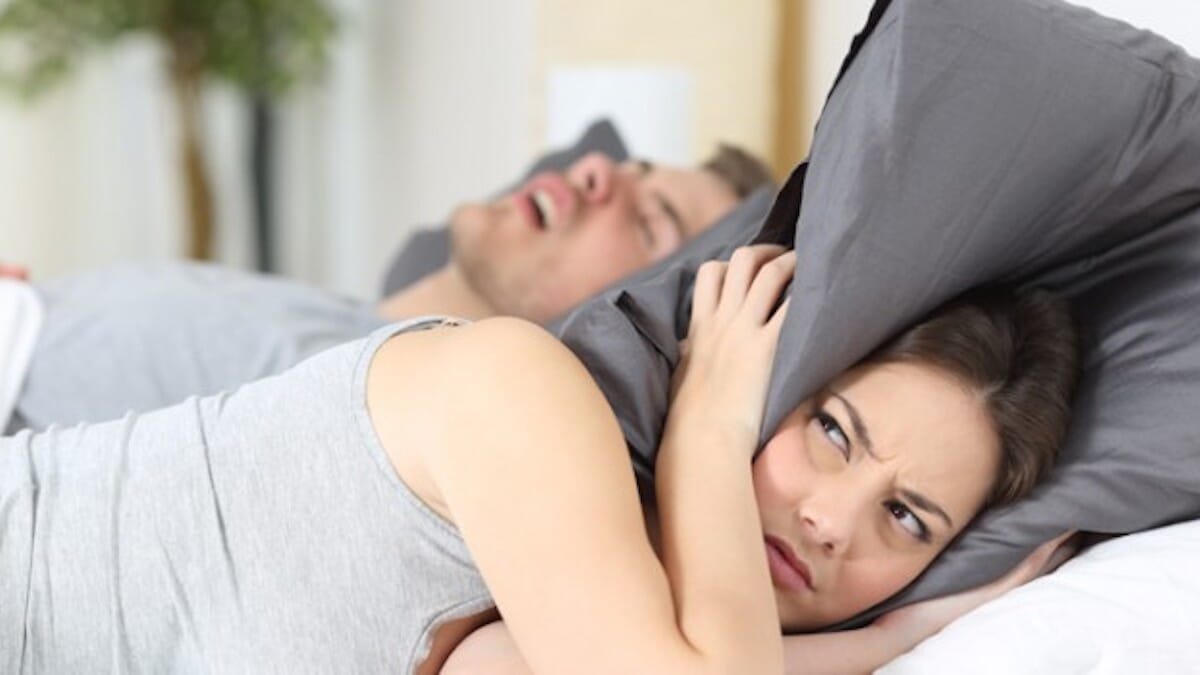Key Takeaways
- There is a very strong link between sleep apnea and mental health.
- Poor sleep or sleep deprivation can increase the risk of many mental health disorders, such as depression, anxiety, and more.
- If you suspect you have sleep apnea and both your sleep and mental health are suffering from it, get tested for this sleep disorder immediately.
The relationship between sleep and physical health has always been intertwined. The same applies to the relationship between sleep and mental health. Poor sleep can worsen many chronic mental illnesses. And some forms of mental disorders such as depression may be the direct result of sleep deprivation.
How Are Sleep and Mental Health Related?
While brain chemistry is not completely understood, it appears that a good night’s sleep gives the mind a period of restoration. Without that opportunity to recharge, brain chemistry alters. Existing mental health issues are aggravated. Compromised daytime alertness over long periods may lead to other mental disorders such as depression.
How Sleep Affects Mental Health
How sleep affects mental health has led many psychiatrists to address sleep disorders to improve mental health issues. Many patients with psychiatric disorders regularly experience sleep deprivation, which also escalates their mental condition. Some mental illnesses may directly result from poor sleep. If health professionals can identify sleep disorders in patients, they can better treat their mental disorders by recommending sleep therapy.
How Does a Lack of Sleep Affect Your Mental Health?
Brain Fog
Extended sleep loss can make you feel inattentive and unfocused. Brain fog is the result of inconsistent sleep patterns. This fragmented sleep can reduce oxygen saturation in the brain and lead to cognitive issues. If you have trouble concentrating or staying attentive it is important to seek a medical evaluation. Brain fog can be an indicator of chronic sleep loss.
Sleep apnea can often be the cause of sleep loss. Treating sleep apnea can improve consistent sleep so your brain can achieve restoration and reduce brain fog. With treatment, you may find yourself more aware and attentive at work and in life.
Mood Changes
Chronic sleep deprivation can also affect your mood. Sleep loss leads to daytime fatigue, irritability, and mood swings. Often pre-existing mood disorders can lead to erratic sleep patterns which amplify mental health issues. In turn, an undiagnosed sleep apnea condition can worsen an existing mood disorder.
Research has detected a link between mental health issues such as anxiety, depression, and mood swings are related to sleep deprivation and specifically obstructive sleep apnea. 1 Treatment of sleep apnea and improvements in sleep can lead to improvements in these mental health issues. Learn more about the relationship between sleep and mood.
Behavior Changes
Long-term sleep deprivation can also begin to affect behavior. Without healthy sleep, irritability can change behavior. If behavioral issues already exist, a person suffering from sleep loss may find these symptoms worsened.
Behavioral therapies such as cognitive behavioral therapy can help patients manage behavioral disorders. Mindfulness practices and stress reduction techniques may also assist with modifying behavior. Healthy sleep also plays a role.
Proper treatment of sleep apnea can improve sleep quality by maintaining a regular sleep schedule and using healthy sleep practices. These strategies can also help patients from self-medicating for sleep such as using sedatives and alcohol before bedtime.
Stress
Often stress can impact healthy sleep. Stressful thoughts that linger from a day’s activities can disturb normal sleep cycles. People suffering from stress may have difficulty falling asleep, staying asleep, or achieving the deep sleep phase that provides a healthy restoration of mind and body.
When stressed at bedtime, individuals may feel muscle tension that prevents falling asleep, and if they already suffer from sleep apnea, may see symptoms worsen. Long-term stress maintains these disturbed sleep habits and prevents healthy sleep. Eventually, poor sleep leads to poor mental and physical health.
Psychotic Symptoms
Often stress can impact healthy sleep. Stressful thoughts that linger from a day’s activities can disturb normal sleep cycles. People suffering from stress may have difficulty falling asleep, staying asleep, or achieving the deep sleep phase that provides a healthy restoration of mind and body.
When stressed at bedtime, individuals may feel muscle tension that prevents falling asleep, and if they already suffer from sleep apnea, may see symptoms worsen. Long-term stress maintains these disturbed sleep habits and prevents healthy sleep. Eventually, poor sleep leads to poor mental and physical health.
How Does a Lack of Sleep Affect Your Productivity Level?
Daytime drowsiness may seem like a small problem. But with chronic sleep loss, productivity at work and in life can be compromised. Healthy sleep rejuvenates the brain and prepares you for the next day’s activities. A sleep-deprived brain never completely restores and remains groggy.
Sleep loss can cause memory impairment and difficulty learning new things. Attention is impacted so that simple tasks and responsibilities can be overlooked or forgotten. Along with cognitive ability, emotional and psychological health is also impacted. People suffering from sleep deprivation can be more irritable and angry. They may suffer more from bouts of depression and anxiety.
With sleep loss, physical health can also decline. Sleep deprivation can elevate blood sugar and blood pressure levels. People who do not get enough sleep are more likely to experience health issues. Impaired ability to perform from lack of sleep can also reduce productivity at work, which can lead to accidents and faulty performance.
Along with getting tested for sleep disorders, individuals can practice better sleep through consistent bedtimes and meditation before sleeping. Improving sleep can improve productivity and well-being.
Can Sleep Cause Mental Problems?
Sleep works in two cycles: quiet sleep and deep sleep. Quiet sleep prepares the brain to slip into a deeper stage of sleep. Also known as REM sleep, deep sleep is the stage at which the brain rejuvenates and restores. Disruptions in deep sleep prevent the brain from recharging itself, leading to increased symptoms of mental disorders during the day. Therefore, acting on the impact of sleep on mental health, doctors hope to improve mental health conditions for their patients struggling with common disorders.
Depression
Among the 300 million people who suffer from depression, 75% also exhibit signs of insomnia.2 Growing evidence suggests that poor sleep may intensify existing depression symptoms including feelings of hopelessness or sadness. Therefore, by focusing on improved sleep, some depression patients may improve their mental health.
Seasonal Affective Disorder
Seasonal mood swings are also one of the subtypes of depression. This disorder happens at a particular time of the year when the hours of sunlight are reduced. This majorly affects the circadian rhythm of sleep and also the biological clock. People who suffer from seasonal affective disorder may sleep too much or too little and also experience changes in their sleep cycles.
Bipolar Disorder
Bipolar patients experience extremes of emotion from manias to depression, a constant roller coaster that can impact wellness in everyday life. Additionally, research has found that bipolar disorder patients often experience changes in their sleep patterns before a bipolar episode. A better understanding of the connection between bipolar disorder and sleep has led many doctors to treat a patient’s sleep disorder as part of their bipolar disorder treatment. 3
Obstructive Sleep Apnea
Obstructive sleep apnea (OSA) may be impacting mental health. OSA frequently disrupts the REM sleep stage when the airway closes at night. Patients wake up gasping for air. If enough of these episodes occur during the night, a patient is left groggy and inattentive during the day. Long-term sleep deprivation can lead to depression. By treating the sleep disorder first, doctors may help a patient avoid mental health disorders later.
Anxiety Disorder
Anxiety disorder is marked by extreme anxiousness when there is no real threat. Moreover, abnormal sleep patterns may be aggravating anxiety disorder symptoms, Researchers have found that sleep deprivation will cause some kind of mental disorder if left untreated.
Autism Spectrum Disorder
Autism spectrum disorders (ASD) are social and behavioral disorders usually diagnosed in children and adolescents. ASD patients have been found to exhibit sleep deprivation patterns that may worsen their mental health conditions.4 Proper treatment for ASD has inspired many doctors to work on improving the healthy sleep of their patients for long-term wellness.
Schizophrenia
Schizophrenic patients can not differentiate between what is real and what is not real. People who are suffering from schizophrenia are more likely to also suffer from insomnia and circadian rhythm disorder. The medications for schizophrenia may worsen the sleep disorder.
Attention-Deficit/Hyperactivity Disorder (ADHD)
ADHD is more common in children than adults. It is a neurodevelopmental disorder in which the attention span is reduced and impulsive behavior increases. ADHD is common in sleep disorders because people who suffer from sleep disorders show frequent awakenings, restless leg syndrome, etc. People who have both ADHD and a sleep disorder often have reduced attention span and behavioral problems.
Paranoia
An increase in paranoid thoughts is also directly related to sleep loss. Many of the sleep apnea symptoms can impact personal perspective and mental processing. Disruption of sleep at night and oxygen deprivation from sleep apnea can lead to paranoid tendencies during waking life.
Much like other mental health issues, sleep apnea can aggravate mental health problems and mental health problems can lead to continuous sleep problems.
Eating Disorders
Eating disorders such as anorexia nervosa can also impact sleep and may lead to sleep apnea. Restrictive eating disorders deprive the brain of essential nutrition needed for healthy brain function including oxygen saturation. Extreme weight loss, malnutrition and respiratory dysfunction are all consequences of eating disorders. These physical changes can disrupt sleep and may lead to sleep disorders like sleep apnea.
Lack of Sleep and Mental Health
Sleep and mental health are especially acute among sleep-deprived Americans. Chronic sleep disorders impact 50% to 80% of patients in a typical psychiatric clinic, compared with 10% to 18% of adults in the general U.S. population. Sleep problems are particularly common in patients with existing mental health issues such as anxiety, depression, bipolar disorder, and attention deficit hyperactivity disorder (ADHD).1
Can Sleep Improve Your Mental Health?
Sleep is an important part of both physical and mental health. Brain restoration during sleep prepares your mental sharpness for the next day. Proper sleep provides healthy emotional processing, stress management, memory and cognitive function.
Strategies such as cognitive behavioral health therapy assist patients with sleep issues. Mindfulness training and meditation can help relieve stress and disciplined sleep patterns can help the brain and body align to better sleep.
How Much Sleep Do You Need for Better Health?
Leading health organizations, including the National Sleep Foundation, American Academy of Sleep Medicine, and Centers for Disease Control and Prevention (CDC) have specific recommendations for healthy sleep. As we get older, the need for extended periods of sleep is reduced. That doesn’t mean we should go without sleep. As we enter adulthood, at least seven hours of sleep at night is recommended to fully recharge the mind and body. Learn more about sleep recommendations.
Ways to Improve Sleep and Mental Health
Cognitive Behavioral Therapy
Cognitive behavioral therapy plays an important role in improving mental health and sleep apnea, especially if a patient struggles with both.
Cognitive behavioral therapy strives to help patients understand their sleep deficiency and develop ways to reduce it through personal behavior. This therapy, in combination with traditional CPAP therapy, can help improve mental wellness and sleep.
Patterns of poor sleep can be changed with cognitive behavioral therapy for other sleep disorders as well. Insomnia often involves erratic sleep patterns and stress-related thoughts at bedtime. Cognitive behavioral therapy helps patients align to consistent sleep patterns and reduce stress before going to sleep. Issues with anxiety and nightmares also involve stress-reducing practices as part of healthy sleep hygiene.
Improve Sleep Habits
Healthy sleep habits are important to everyone, whether they suffer from sleep apnea or not. Our circadian rhythm is a pattern of sleep cycles that leads us into deep sleep every night. This stage of the cycle is the restorative level that provides us with healthy wakefulness each day.
To achieve healthy sleep habits, you must maintain a consistent sleep schedule so that your body and mind know when to go to bed every night. Consistency regulates the sleep cycle. This patterned behavior can ensure healthy wakefulness because you always get enough sleep each night.
Over-the-Counter Sleep Aids
For those who still struggle with healthy sleep even with lifestyle changes, over-the-counter sleep aids are a potential remedy. A variety of sleep aids are available without a prescription. Many sleep aids such as melatonin supplements can be helpful for relaxation before bedtime.
However, abuse or misuse of these medications can lead to the opposite result. Studies show that sleep aids can be helpful for those who carefully follow dosage recommendations and speak to their doctor regarding their use. Overuse or misuse can lead to too much sleep, grogginess during the day, or dependency on medicines for sleep.
Sleep Medicine
Sleep treatments do not always require drugs. Sleep apnea is effectively treated using CPAP therapy. Sleep apnea occurs when the airway closes at night and causes loss of breath and periods of wakening that disrupt sleep. CPAP therapy prevents the airway from closing by using pressurized air, so you achieve healthy sleep.
Oral appliances that help keep the airway open are also an option. Most importantly, lifestyle changes such as consistent bedtimes, avoiding alcohol or caffeine at night, and stress management before sleeping are also helpful.
By treating sleep apnea, you may also alleviate many of the harmful symptoms of mental health issues. Reducing depression and anxiety with better sleep can supplement existing mental health management. Speak to your doctor and mental health specialist to help them coordinate and incorporate healthy sleep habits and strategies into your mental health treatment.
How Can Sleep Care Online Help You?
Better mental health first begins with better sleep. Diagnosis of sleep disorders right away helps doctors focus on improving sleep to reduce the impact of mental health issues. Sleep disorders like obstructive sleep apnea can also be diagnosed at home with a home sleep study test through Sleep Care Online. Here is how it works.
• Purchase the Complete Care Package from Sleep Care Online
• Next, fill out a brief health and sleep survey and receive your home sleep apnea test in the mail
• Then, Follow the instructions and wear your NightOwl fingertip sensor to bed.
• In the morning, end the test to upload your results to the cloud for review by one of our sleep doctors
• Schedule a 10-minute telehealth visit with the doctor to go over the test and determine the need for CPAP therapy
Start Today
Take control of your mental health by taking control of your sleep. Purchase the Complete Care Package from Sleep Care Online today. Additionally, for more information or to ask any questions, contact our customer care team at 866-465-4478 or email contact@sleepcareonline.com.
References:
- Harvard Health Publishing. Sleep and mental health. March 2019.
- org. Mental Health and Sleep. September 2020
- National Library of Medicine. Treating insomnia improves mood state, sleep, and functioning in bipolar disorder: a pilot randomized controlled trial. January 2015. Accessed October 2020.
- National Library of Medicine. Autism and sleep disorders. October 2015. Accessed October 2020.





